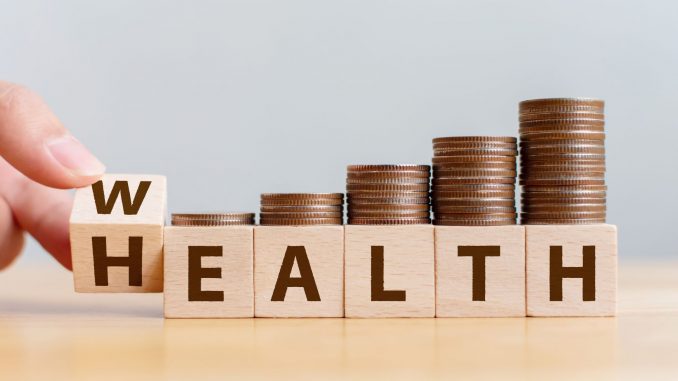
Like your physical and mental health, your financial health is critically important. However, while many people regularly go to the doctor to check their physical and mental health, our personal financial situation is something that is all too often forgotten.
Our personal finances have the power to make or break us, so it’s important to know exactly where we stand. By better understanding our financial position, we can determine what adjustments we need to make, from saving to spending, and learn the steps we can take to achieve our financial goals.
- Your credit score
Your credit score is not so much a measure of your financial success but of your ability to access financial products at an affordable rate. Your credit score is a number that’s typically between 300 and 700. The higher your score, the better you have been at paying debt and meeting your financial obligations in the past. That gives lenders and other providers the confidence to offer you financial products at a relatively low rate. If you want to improve your credit score, you should use credit regularly and always make your payments on time. Here are some more tips to improve your credit rating.
- Debt-to-income ratio
According to research published by short term loans website Wonga, 52% of people would like to pay off debt but can’t due to their current financial constraints. The reason for that is likely to be a high debt-to-income ratio. It might sound complicated, but calculating your debt-to-income ratio is actually very simple. Just take the total amount you pay in debt repayments every month (mortgage, car payments, credit cards, student loans, etc.), divide it by your after-tax monthly income and then multiply it by 100 to get a percentage. Source: Wonga South Africa Financial Wellbeing Report
If you have a debt-to-income ratio of 30% or lower, then you have a level of debt that you should be able to control. However, if your debt-to-income ratio is 40% or higher, it’s a sign that you may struggle to repay your debt in the future. Of course, many other factors are at play, but this is a key indicator of financial wellness and a high debt-to-income ratio is something you should try to redress.
- Discretionary spending
You can think of your discretionary spending as your fun money that goes on non-essential items such as takeaways, evenings out and trips away. While we don’t have much control over our essential expenses, such as mortgage repayments and utility bills, we have complete control over our discretionary spending.
Tracking your discretionary spending can help you to reduce the proportion of your income you spend on unnecessary expenses, leaving more for your important goals. As a general rule, discretionary expenditure should account for less than 30% of your total monthly income. If it’s more than that, then with a few lifestyle changes, you could stand to save a lot more.
- Living within your means index (LWI)
One of the most prominent indicators of financial health is the ability to live within your means. That means you have more than enough income to cover your essential expenditure, such as debt repayments, food, fuel bills, mobile phone contracts and car payments.
To calculate your LWI, you should divide your total after-tax income per year by your total essential expenditure (including all debt repayments). An LWI of 1.0 shows that every dollar you earn is going towards your non-essential expenses. An LWI or 2.0 or above means that you could cut your income in half and still be able to pay all of your living costs.
What metrics do you use to measure your financial health? Please share your tips with our readers in the comments below.